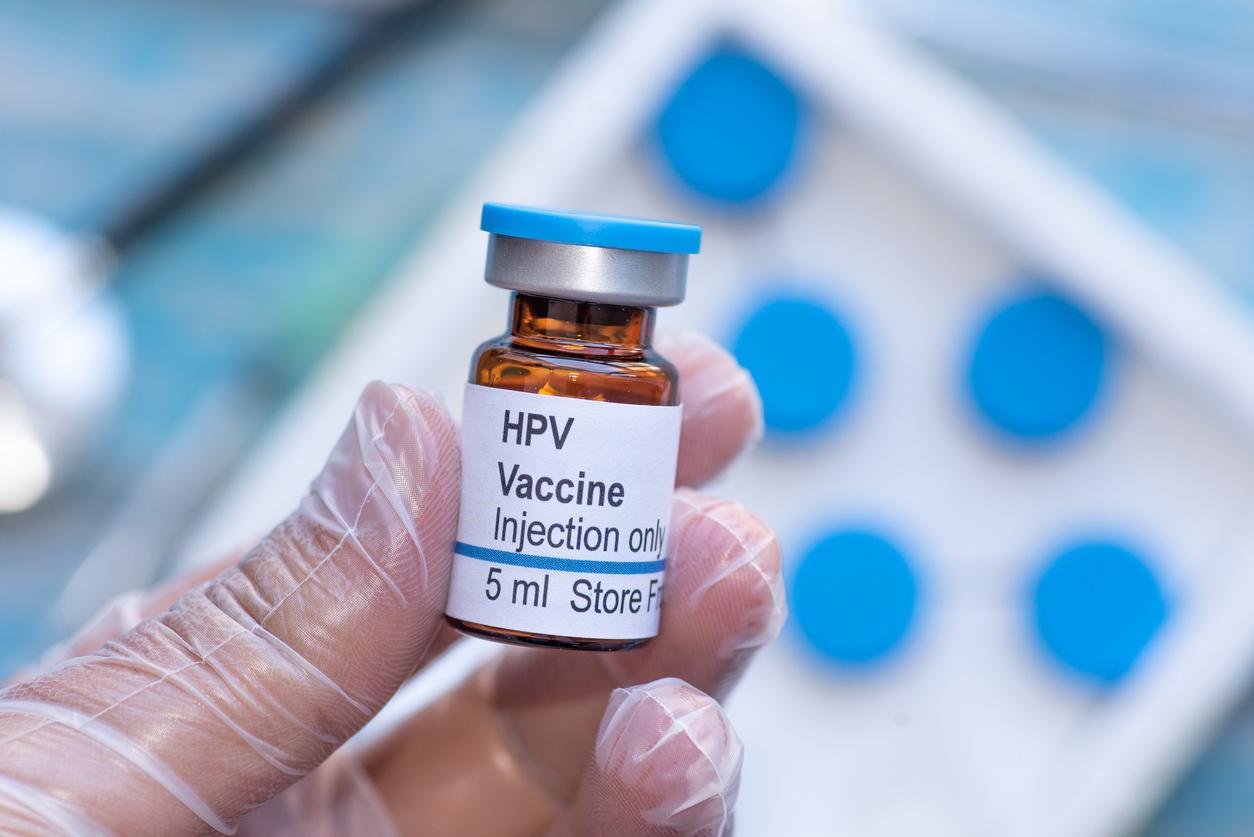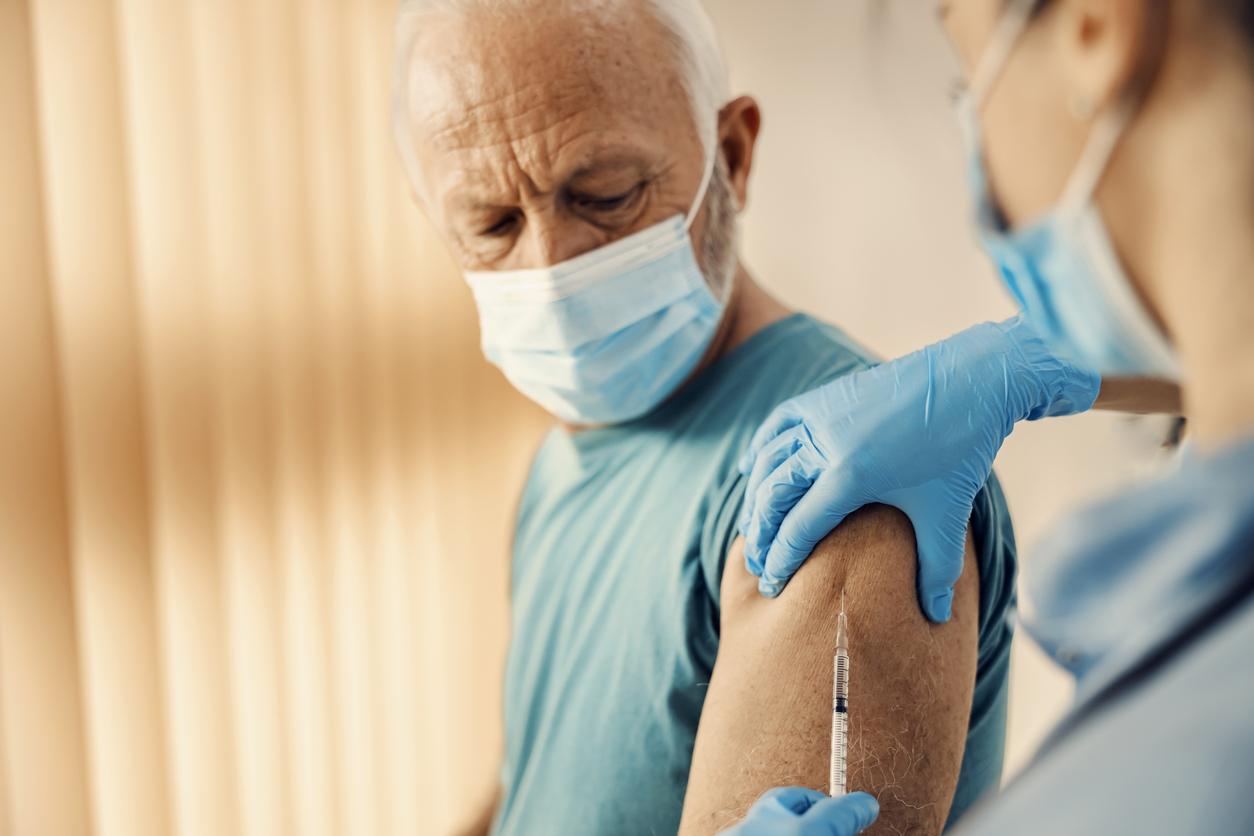A new whooping cough vaccine is under development at Inserm. The first results show that this nasal treatment offers greater efficacy and a better immune response than the current vaccine.

- Called BPZE1, it is a “live attenuated” vaccine, that is to say that it is based on a live bacterium whose pathogenic power is genetically attenuated.
- This vaccine is administered nasally, in the form of an inhaled suspension, thus reproducing the natural route of infection and consequently improving the duration of effectiveness.
- Phase 2 clinical trials have already been launched.
Whooping cough is one of the deadliest diseases for infants. Between 1996 and 2012, approximately 10,000 cases were recorded in France in babies under 6 months, 18% of whom were admitted to intensive care. Since the 1950s, vaccines have been developed but either they do not provide sufficient protection or they cause too many side effects. So much so that since the 2000s, the whooping cough rate has been rising. Inserm researchers are working on the development of a new vaccine and the results of phase 1 clinical trials, published on July 17 in the journal The Lancet Infectious Diseasesshow good tolerance and an effective response in adults.
Lasting efficiency
Current vaccines against whooping cough offer only limited protection while vaccination is mandatory for all infants born from 1er January 2018. The first series dates from the 1950s for vaccines called “inactivated”. It consisted of injecting the bacteria inactivated by heat or chemical treatments. “Effective, they had however the disadvantage of inducing after the injection, a certain number of local and general undesirable effects generally not very serious but embarrassing”, adds Inserm in a press release published on September 29. Since then, a new generation of vaccines has been developed which focuses on the use of only a few bacterial proteins. Here too their effectiveness is limited since the whooping cough rate has been going up for ten years. “Current vaccines indeed provide good protection against the disease, but their response is short-lived (3 to 5 years) and they do not sufficiently block the transmission of the bacteria between individuals.”, adds Inserm.
The Inserm research team is working on a more effective vaccine than the existing ones. Called BPZE1, it is a vaccine “alive attenuated”, that is, it is based on a living bacterium “whose pathogenicity is genetically attenuated (and not heat-inactivated)”, specifies Inserm. Its main objective is to improve tolerance in patients unlike vaccines available on the market. “After identifying and describing the toxicity genes responsible for the pathological effects of whooping cough, the researchers succeeded in genetically modifying the bacterium to obtain a strain devoid of toxicity from which they designed BPZE1the researchers wrote. This vaccine is administered nasally, in the form of an inhaled suspension, thus reproducing the natural route of infection and therefore improving the duration of effectiveness..”
Phase 2 already launched
Results from phase 1 clinical trials have shown that this treatment elicits an effective immune response, following good results in pre-clinical animal trials. “This vaccine triggers local immunity in the respiratory tract with the mobilization of innate immunity that allows a rapid responsedevelops Camille Locht who led the study. In addition, the bacterium is quickly eliminated after its introduction into the nasal passages, which limits its transmission. We expect BPZE1 to be effective for decades.” To arrive at these results, the trial included 48 participants between the ages of 18 and 32. They were divided into three groups where each time 12 volunteers received the treatment and 4 received a placebo. “A nasal swab and a blood sample were taken six times during the first month, then six months later and finally one year later, to check for the presence of the vaccine in the mucous membranes and the appearance of a specific immune response.”, reveal the researchers.
A year later, the highest dose has “triggered the production of specific antibodies” in 100% of the volunteers. A figure that rises to 80% for those who received the lowest dose. Regardless of the dose, no adverse effects were found by the researchers. Results that prompted them to launch phase 2 clinical trials on 300 patients. “If this vaccine passes all stages of development, it could be used primarily in adults caring for infants to protect them from possible transmission.foresees Camille Locht. Use in frail individuals and infants is planned, but will require additional safety data which may take time to obtain.”

.
















